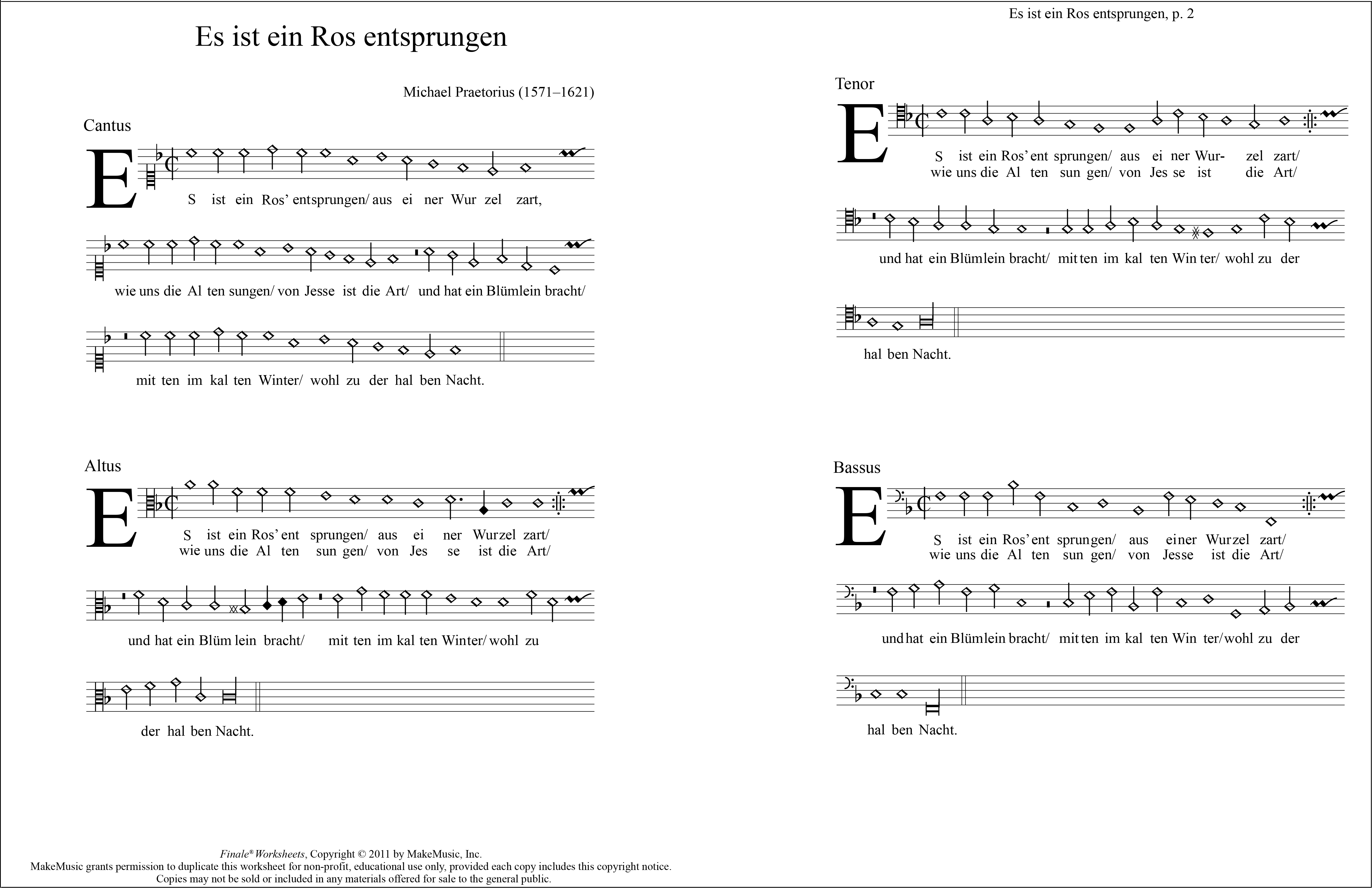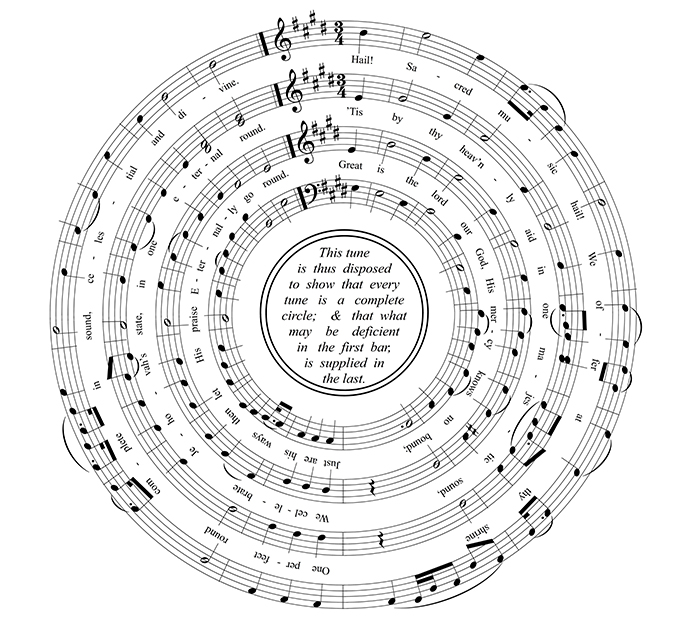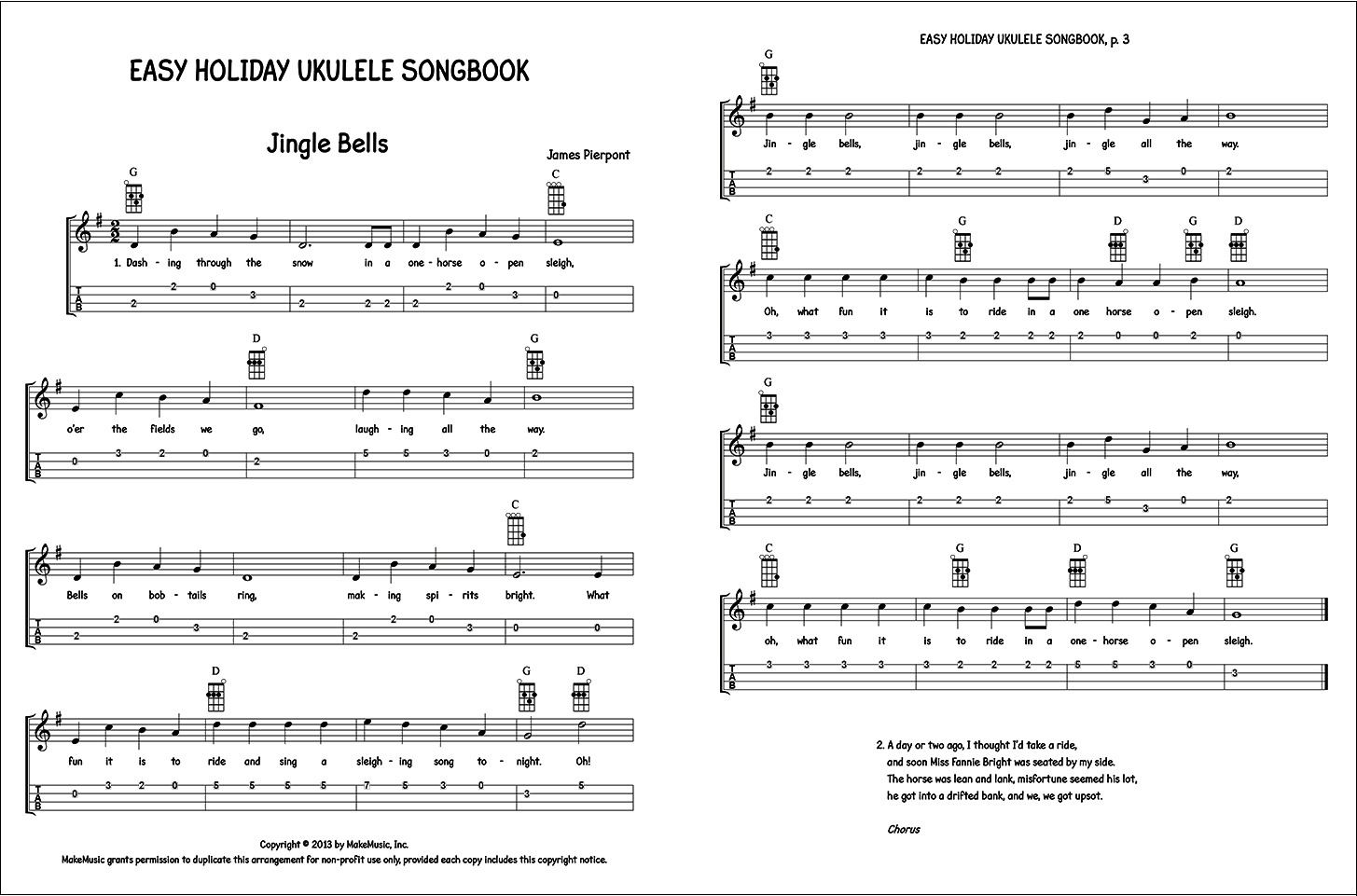
Finale includes a vast collection of music education worksheets and repertoire. To find it, go to Finale’s File menu and choose Open Worksheets & Repertoire…
If you’re not a music educator, you might just ignore the whole collection. But then you’d miss out on a hidden treasure of music repertoire.
Free Repertoire in Finale
In addition to music education worksheets, Finale includes hundreds of pages of repertoire in a wide variety of styles. These styles include, but are not limited to:
| Band | Chant | Choral | Figured Bass |
| Flex Band | Folk | Guitar and Uke | Handbells |
| Holiday and Patriotic | Instrumental | Jazz Ensemble | Medieval |
| Orchestra | Piano | Renaissance | Rounds |
| Schenker Analysis | Seasonal | Shape Notes | Vocal |
Why You Might Care
First of all, if you’re creating music notation, these pieces can serve as models for what each genre might look like. Because they’re all editable Finale files, they can also serve as templates or launchpads for your own creations.
Specific files can be particularly helpful when you’re writing in a style that’s new to you. If you’ve never created renaissance notation before, you might use the Praetorius Es ist ein Ros entsprungen (found in Repertoire > Classical > Vocal) as a starting point.

In addition to being stylistic models, they also demonstrate best practices in using Finale. If you’re not sure how to accomplish something in Finale, you might find a piece where it’s been done and reverse-engineer the process.
For example, let’s say you want to create a piece that displays figured bass and plays back a figured bass accompaniment. You should check out the Handel Sonata (Classical > Instrumental).
This repertoire can also provide invaluable resources if you want to create something visually tricky like Mozart’s Table Duet (Classical > Instrumental) or Billings’ Connection seen below (Classical >Vocal).

Here are just a few suggestions of files that offer some insight on specific styles:
- Handbells – Classical > Instrumental > Bizet – Holst Carillon (Handbells)
- Period Chant – Classical > Vocal > Anon. Veni, Veni (Chant)
- Modern Chant – Classical > Vocal > Agnus Dei (Chant)
- Schenker Analysis – Classical > Piano Keyboard > Chopin Etude in Eb Min (Schenker Graph)

See AND Hear What’s Possible
If you just gave or received Finale as a gift, you might utilize these repertoire files as “sample” files, not only to see what Finale can do, but also to hear what Finale can do with its built-in music instrument sounds. Open some files and press Play. Change some notes and press play again. Experiment!
Blank Manuscript Paper
Why would anyone with music notation software print out blank manuscript pager? Why, to compose at the beach or in the sauna, of course. Always having manuscript paper handy is the mark of a prepared composer – and camper. Finale includes a dozen examples, with a few loosely inspired by classic Judy Green offerings. Find them all in Manuscript Paper.
Music to Perform
Been meaning to learn some Bach Inventions? Find them at Classical > Piano Keyboard. If you’re caroling this year, explore Holiday Patriotic > Vocal > Christmas Caroling Collection.
Speaking of the holidays, there’s a ton of seasonal music for every performer. Check out Holiday Patriotic > Instrumental to find 45 folders of music containing 375 titles for a wide variety of instrumentation. In Holiday Patriotic > Guitar-Ukulele there’s some very nice guitar tablature arrangements as well as an “Easy Holiday Ukulele Songbook.”

Music Education
If you teach piano, there’s a bunch of holiday material you can put to use, too. You’ll find it in Holiday Patriotic > Piano Keyboard – it’s even broken down into Advanced, Intermediate, Primer, and Pre-Reading. There are dozens of examples of folk music, ideal for general music classrooms, in Folk Traditional.
Of course if you’re a music educator, you might also be interested in the worksheets. Designed for K-12 students of general music, theory, band, orchestra, and choir, the worksheets (and puzzles) help teach basic elements of music. Covered topics include counting, scales, chords, music vocabulary, and more.
Explore!
Our goal in writing this post is to simply bring these resources to your attention and to encourage you to explore them. It’s not really a stretch to consider them hidden treasure. Go ahead and dig them up and have some fun. Hopefully, you’ll find some inspiration (or at least some efficiencies) you can use in your next project.